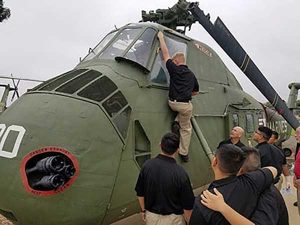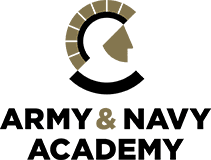
An aviation summer camp presents the perfect framework for students to accelerate their understanding of science and math and leave them with a whole new understanding and enjoyment of these core subject areas in school.
Math Matters Up in the Air
So, let’s begin with math, a cornerstone of aviation. During an aviation education program or aviation summer camp, students quickly learn to appreciate the value of calculations. Once up in a plane, for instance, pilots must know how to calculate quickly without the use of calculators.
While applying mathematical principles, aviation summer programs for youth allow students to learn about the principles of flight, mass and balance, general navigation, flight planning and monitoring.
Aviation requires an understanding of geometry, linear algebra, and calculus, so an aviation camp is a great way to acquire and apply key concepts from each of these subjects.
As you can see, the practical application of math to aviation could be the catalyst for a student really working harder at math when they return to school. They will walk away with an understanding of why math matters and enjoy it on an entirely different level. They will master key concepts, learn how to calculate more quickly, and see the various practical applications for learning math.
Physics Made Real
Now, in terms of science, understanding physics is essential in the world of aviation and aerospace. No need to be a physics whiz, but without a background in science, aviation training will be quite hard. If your child is leaning towards interests in aerospace engineering, understanding math, physics, aerodynamics, and materials science are all critical.
Physics addresses how engines work on planes, how planes and helicopters fly, and countless other things related to aviation and aerospace.
For example, the Bernoulli Principle is a key principle of aerodynamics. Aerodynamics involves a synergy between various forces, including: weight, drag, lift, and thrust.
At the University of Rochester, Dr. Frank Wolfs, in the Department of Physics and Astronomy presented a lecture about what makes an airplane fly, citing weight and balance, control and stability, lift and Bernoulli, and take off and landing. He even details the physics behind the various aircraft instruments and why they work. These include forces of flight, the grave-yard spiral, and the gyro system.
So, you can see how your child can really get into physics during an aviation summer camp. Seeing these practical applications related to aviation can really help students gain a greater understanding of the world of physics and make learning come alive.
Critical Thinking Skills Go to Work
Beyond math and science, aviation and aerospace also require an understanding of graphs and formulas.
The ability to analyze data and information is all part of learning how to think critically, in order to make sound judgement calls.
“According to the National Association of Colleges and Employers (NACE), critical thinking/problem solving is defined as the ability to exercise sound reasoning to analyze issues, make decisions, and overcome problems.” – Christie Miller, Embry-Riddle Aeronautical University.”
This definition certainly has direct application to becoming a pilot, where decision-making is so important during take-off, flight, and landing. We saw this firsthand with the famous landing by Captain Sullenberger III on New York city’s Hudson River after a bird strike caused the engines to fail.
Aim High
An aviation summer camp can be a great way to not only develop critical thinking skills and develop an understanding of key mathematical concepts and scientific practices, but it can also potentially ignite an interest in these amazing fields.
The fields of aviation and aerospace are dynamic and growing at a fast pace. There is an anticipated shortage of pilots on the horizon and aerospace is wide open. With NASA and JPL at the forefront in aerospace, alongside Elon Musk’s private SpaceX program, opportunities will continue to multiply.
“With the aviation and aerospace industry growing, tremendous opportunity exists for today’s students.” – US Dept of Transportation
Buckle Up for a Great Flight – Find the Right Aviation Summer Camp
So, you can now see how attending an aviation camp can really help your child in school and beyond.
So, now let’s turn to how you can find the best aviation summer camp for your child. Although few and far between, there are actually some outstanding private boarding schools that offer amazing aviation summer camps for youth, including Culver Academies in Indiana and Army & Navy Academy in California. A boarding school can be ideal as they often have the faculty, staff, and facilities to allow your teen to stay on campus and receive a great experience. If you are thinking in terms of a college campus, Embry-Riddle Aeronautical University has a specialized summer camp for juniors and seniors, ages 17-18.
Aviation is pretty specialized, so choosing the right aviation summer camp for your child is key. For instance, if you want your teen to develop leadership skills, alongside a chance to improve math and science, think about all the potential outcomes.
At Army & Navy Academy, for instance, the aviation summer camp elective is part of a broader leadership camp. The aviation elective introduces aeronautics through in-class discussions and project-based learning. This program covers: principles of flight, aircraft anatomy, space travel, remotely-piloted aircraft systems, and how to earn drone, glider, and private pilot licenses.
Campers explore the elements of leadership during hands-on experiences and interactive classes. The ability to lead, work in teams, and communicate effectively are all part of building confidence.
At Army & Navy Academy, they offer two tracks, one for an introduction to leadership, and the other an advanced leadership program for credit, and both offer an elective in aviation.
This is an investment well worth it, especially if your child improves his/her math and science skills, but it is also a real bonus if it leads to a college major or a career direction. If your child is lucky enough to attend one of these aviation summer camps, they should really take advantage of this rare opportunity to work on and improve their skills, especially in math and science. It will really pay off when they return to school in the fall and give them something to share with their peers.
Looking Beyond the Horizon
Now, let’s say, you are even thinking beyond the summer to find a new independent private school for your child to attend in the fall. Attending a summer aviation camp is also a great way to get to know the day or boarding school in a short timeframe to assess whether it is a good match.
For instance, if your son attends the one at Army & Navy Academy, a private all-boys boarding and day school, they also offer a full aviation course during the academic year. As noted on the Army & Navy Academy website:
“The University of California-approved Warrior Aviation Course (WAC) will connect aviation and aeronautics, science, technology, engineering, and mathematics (STEM) courses with other core subject curriculum to prepare Cadets for future careers as certified pilots of commercial and military aircraft as well as Unmanned Aerial Vehicles or drones. Cadets will also receive college credits to help them pursue aviation at a four-year college or university.
Cadets enrolled in this four-year program will learn about different aspects of flight, aviation, and aerospace from a certified pilot and instructor. The course will provide cadets with a comprehensive curriculum and ground school on scientific theory and practice, with the ultimate goal of passing the FAA Private Pilot Exam. This course will serve as a prerequisite for the Instrument Pilot course.
Cadets will not only be prepared to take and pass the Private Pilot written exam, but will be thoroughly prepared for college, future leadership roles, and a possible career in the Aviation sector. Completion of the course should also ultimately lead to Cadet’s earning their Pilot’s Pilot License.”
High school programs like this one and others mentioned, really help teens get a head start in thinking about where they want to attend college, majors of interest, and exciting career options. Keep in mind, military boarding schools are college prep and offer many other benefits, including: leadership skills, time management, goal-setting and other executive function skills.
Ready for Take-Off?
Well, we covered the “ground” on how an aviation summer camp can help your middle or high school teen in school, but hopefully, we have also given you some ideas about ways to explore camp offerings either at school sites or universities. There are, of course, online courses as well, but nothing beats the hands-on interactive experience of being in simulators, flying drones, and learning directly from pilots. By following a student’s interests early on, a real passion can develop for math and science, leading to better performance in school, and even to college and career choices later on. Encourage your child to reach for the sky.
